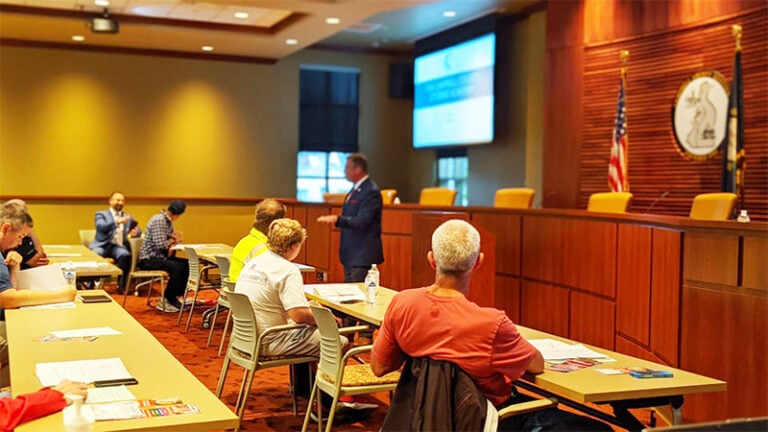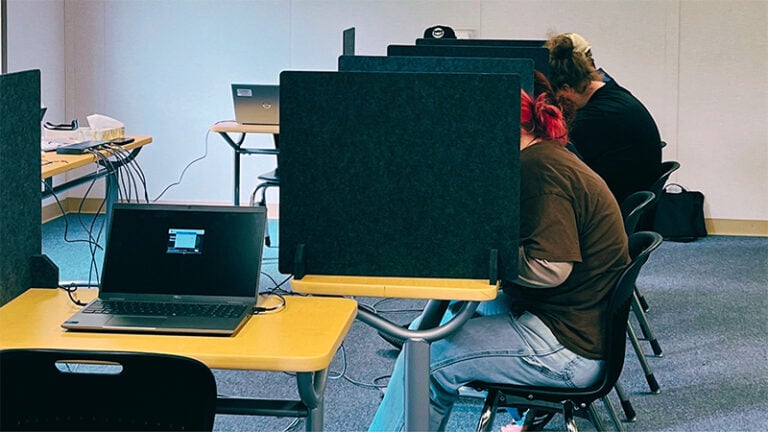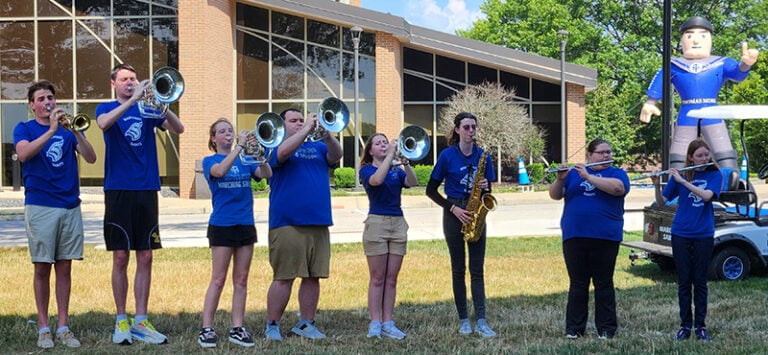The Kentucky Board of Education (KBE) has approved a list of legislative priorities for the 2019 session of the General Assembly that places student success and preparedness and family empowerment at the center of our legislative efforts during the upcoming session.
Admittedly, our agenda is ambitious, but I believe the legislative changes we are seeking are central to taking the next critical steps forward with improving education outcomes in Kentucky. While you can access all of our legislative priorities on the state board’s web portal, I want to spend some time here highlighting a few that might be of particular interest to you.
The first priority concerns increasing the voice of parents on school-based decision-making councils (SBDM). Established by House Bill 940 – better known as the Kentucky Education Reform Act – during the 1990 legislative session, SBDMs promote the idea of shared leadership of Kentucky’s schools among those who are closest to the students.
SBDM councils play a critical role in the lives of every student attending a public school in the Commonwealth. Kentucky statute grants councils authority to set school policy in key areas including curriculum, selecting the school principal, and selecting textbooks and instructional materials. Currently, state law requires that SBDM council membership be two parents, three teachers and the principal or administrator. Councils may be larger but must maintain that ratio of parents, teachers, and administrators.
The Kentucky Department of Education (KDE) will support legislation that makes the number of parents equal to the number of teachers on these councils. Parental engagement is a vital key to ensuring our schools are meeting the needs of all students, and there is nobody who is closer to students than their parents or guardians. I am convinced that increasing parental engagement in school decision making is key to improving education outcomes and success for students.
KDE also will support legislation that establishes a permanent funding mechanism for high-quality public charter schools in Kentucky. We will support this legislation because charter schools give us an additional tool for raising student achievement, particularly for low-income kids and kids of color in urban areas. Those are the students and the places where research shows charter schools have been most impactful. While we have legislation that allows for the establishment of public charter schools, a funding mechanism for the schools is necessary to provide parents with these additional public school options.
We will support legislation that permits public education funding already appropriated for Kentucky students to follow a child to a public charter school when his or her parents decides that a public charter school is the best educational option for him or her. I want to be clear that Kentucky’s charter school law does not permit students to be assigned to a charter school. In Kentucky, charters must be schools of choice. If, as some have suggested, Kentucky parents do not want charter schools, there will be no charter schools. Parents must actively choose charter schools for their children. If parents don’t choose public charter schools for their children, then there is no movement of funding to charter schools.
Last, I want to highlight a legislative priority concerning early learning. The KDE will support legislation that requires targeted intervention in reading and mathematics for struggling students in grades K through 3. Those first four years of a child’s education set the stage for that child’s entire educational career. If a child falls behind in either reading or mathematics in those early years, it becomes exponentially harder for him or her to catch up or keep up with his or her peers. We are currently engaging stakeholders across the state to discuss what the details of legislation would look like. Excitingly, there is a tremendous amount of interest and energy in this incredibly important area.
Engaging more parents, community
And because we know that a great education for Kentucky’s students neither begins nor ends with what happens in Frankfort, we will be engaging more parents and community members than ever before to inform our work. It will take all of us to give our children the education they need and deserve.
One of my top priorities here at the Kentucky Department of Education (KDE) is to increase the number and percentage of high school students successfully completing early postsecondary opportunities, such as dual credit, Advanced Placement (AP), International Baccalaureate and Cambridge Advanced International.
These types of opportunities let high school students earn college credit before they graduate. Why do I believe that is so critical? Because research tells us that college students who complete an early postsecondary opportunity in high school are more likely to enroll in college, have a higher grade point average and graduate with a degree than their classmates who did not participate in early postsecondary opportunities.
AP courses are offered in more than 35 subjects, ranging from high-level mathematics and science to fine arts. Students can opt to take a standardized end-of-course exam at the conclusion of each course and if they score well enough on it, their scores will earn college credit at all of Kentucky’s public postsecondary institutions and many other institutions across the state and nation. Although it varies among postsecondary institutions, most Kentucky colleges require a minimum qualifying score of 3 on an AP exam to earn college credit for the course.
KDE, educators, parents, and lawmakers have been working to increase access to AP courses for all Kentucky students. For the past two years, the department has set aside funding to help districts cover the costs of taking an AP exam – which is currently $94 – for students who qualify for free or reduced-price meals. During the 2018 session of the Kentucky General Assembly, legislators provided $1 million for the 2019 and 2020 fiscal years to cover AP and International Baccalaureate exams for low-income students.
The effort to open up the opportunity for all students to earn college credit while in high school is paying off. In May 2018, students took more than 50,000 AP exams, with more than 25,000 earning qualifying scores of three or higher – more than in previous years. That translates into earned college credits for which those students and their families will not have to pay at the college level.
Dual credit – classes in which a student simultaneously earns both high school and college credit – is another excellent option for students to get a head start on their college or university career. Statewide, nearly 35,000 high school students participated in dual credit courses through a college or university during the 2017-2018 academic year, up 45 percent since the 2015-2016 year.
Part of that gain in students taking dual credit classes can be attributed to the Dual Credit Scholarship Program. The scholarship covers the cost for two courses in either general education or career and technical education. Preliminary data for fall 2017-2018 showed nearly $5.6 million in scholarship funding was distributed for dual credit.
Taking dual credit courses became more affordable in July 2018, when Gov. Matt Bevin signed an executive order expanding the work Ready Kentucky Scholarship to students enrolled in a certificate, diploma or associate program in one of the state’s top five high-demand workforce sectors. Students can use the scholarship each year of high school to cover the cost of tuition and fees for up to two dual credit career and technical education courses.
Depending on their course of study, a student has the opportunity to earn about 30 credit hours – or about half of the hours typically required – toward an associate degree while still in high school with these two scholarship programs.
All of these opportunities – AP, dual credit and others – are critical to our goal of ensuring all students graduate high school prepared to succeed in college, career, and life. I ask parents to encourage your children to take advantage of these opportunities. And if your district doesn’t offer many options, work with your school and district leaders to see how you can help expand the opportunities for not only your child, but every child in that school.
Teachers also are instrumental in this work, not only in preparing students to be ready for AP and other rigorous coursework, but also in encouraging students to have the confidence to enroll in these opportunities.
Together, we all can be a part of helping a new generation of students find and prepare for their dreams.

Wayne Lewis is the Commissioner of the Kentucky Department of Education
This column originally appeared in Kentucky Teacher, a publication of the Kentucky Department of Education.


















Parent involvement, Heh? That of all things when the legislature is considering a bill to take the hiring of school principals away from Site Based Councils, that include parent input, and hand it over to Superintendents. Meet the new Good old Boy network! The logic seems to be that if Superintendents are going to be held accountable for their District’s progress, they should be able to choose their Personnel. Let’s apply that same logic to the classroom. If I as a teacher am going to be held accountable for the progress of my students, then shouldn’t I be able to pick my students?